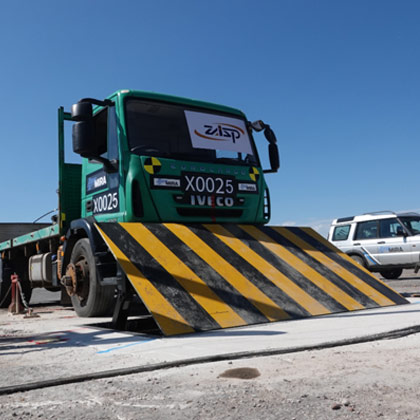عندما يتعلق الأمر بتأمين المداخل والتحكم في تدفق حركة المرور في مواقف السيارات, مجتمعات مسورة, أو المنشآت الصناعية, تلعب الحواجز دورًا حاسمًا. تعد الحواجز الهيدروليكية والكهربائية خيارين شائعين متوفرين في السوق, وكل منها يأتي مع مجموعته الخاصة من المزايا والعيوب. سيساعدك فهم إيجابيات وسلبيات الحواجز الهيدروليكية مقابل الحواجز الكهربائية على اتخاذ قرار مستنير بناءً على احتياجاتك المحددة. في هذا المقال, سنقوم بتفصيل كلا النوعين وفوائدهما وعيوبهما.
الحواجز الهيدروليكية: المزايا والعيوب
الحواجز الهيدروليكية استخدم نظامًا هيدروليكيًا للتحكم في رفع وخفض ذراع الحاجز. وهي معروفة بمتانتها, قوة, والتشغيل السلس, مما يجعلها مثالية للتطبيقات الثقيلة. فيما يلي بعض الإيجابيات والسلبيات الرئيسية للحواجز الهيدروليكية:
1. المتانة وطول العمر
الايجابيات: إحدى الفوائد الأساسية للحواجز الهيدروليكية هي متانتها. وهي مصممة لتحمل مستويات عالية من التوتر وحركة المرور الكثيفة, مما يجعلها خيارًا مناسبًا للبيئات الصناعية أو المناطق شديدة الأمان. تحتوي الأنظمة الهيدروليكية على عدد أقل من الأجزاء المتحركة, مما يؤدي غالبًا إلى عمر أطول مع تآكل أقل مقارنة بالأنظمة الأخرى.
سلبيات: بينما الحواجز الهيدروليكية متينة, أنها تتطلب صيانة منتظمة. يجب فحص السائل الهيدروليكي واستبداله بشكل دوري لضمان التشغيل السلس. متأخر , بعد فوات الوقت, قد تتآكل الأختام والخراطيم أيضًا, تتطلب إصلاحات.
2. القوة والأداء
الايجابيات: الحواجز الهيدروليكية قوية ويمكنها التعامل مع حجم أكبر, أسلحة أثقل. وهذا يجعلها مناسبة للبيئات عالية الأمان حيث يكون وجود حاجز قوي ضروريًا للتحكم في الوصول. أنها تعمل بسلاسة وهدوء, حتى تحت الأحمال الثقيلة, مما يجعلها مثالية للمناطق ذات الكثافة المرورية العالية.
سلبيات: الحواجز الهيدروليكية, بينما قوية, يمكن أن تكون أبطأ في التشغيل مقارنة بنظيراتها الكهربائية. قد لا يكون وقت التشغيل الأبطأ هذا مثاليًا للبيئات التي تتطلب حركات حاجز سريعة.
3. مقاومة الطقس
الايجابيات: تتميز الحواجز الهيدروليكية بمقاومتها العالية للظروف الجوية القاسية. النظام الهيدروليكي مغلق, منع الغبار, حطام, والرطوبة من التسبب في مشاكل تشغيلية. وهذا يجعلها خيارًا رائعًا للتركيبات الخارجية في البيئات التي تعاني من الظروف الجوية القاسية.
سلبيات: بالرغم من مقاومتها للعوامل الجوية, يمكن أن تتسبب درجات الحرارة الباردة الشديدة في زيادة سماكة السائل الهيدروليكي, يحتمل أن يؤدي إلى إبطاء عمل الحاجز. قد تكون هناك حاجة إلى سائل خاص للأجواء المتجمدة لمنع هذه المشكلة.
الحواجز الكهربائية: المزايا والعيوب
تستخدم الحواجز الكهربائية محركًا كهربائيًا لرفع وخفض ذراع الحاجز. هذه الأنظمة مشهورة بسرعتها, كفاءة الطاقة, وسهولة الصيانة. وفيما يلي إيجابيات وسلبيات الحواجز الكهربائية الرئيسية:
1. السرعة والكفاءة
الايجابيات: الحواجز الكهربائية معروفة بتشغيلها السريع. يمكنهم رفع وخفض الذراع الحاجز بسرعة, وهو مثالي للمواقع التي تحتاج المركبات إلى المرور عبرها بشكل متكرر ودون تأخير. وقت استجابتهم السريع يجعلهم الخيار المفضل لمواقف السيارات والمناطق التجارية المزدحمة.
سلبيات: بينما توفر الحواجز الكهربائية السرعة, قد يفتقرون إلى الطاقة اللازمة لتطبيقات الخدمة الشاقة للغاية. في بيئات أمنية مشددة حيث قوية, هناك حاجة إلى حاجز دائم, قد لا توفر الحواجز الكهربائية دائمًا نفس مستوى المتانة الذي توفره الأنظمة الهيدروليكية.
2. سهولة الصيانة
الايجابيات: تتطلب الحواجز الكهربائية صيانة أقل من الحواجز الهيدروليكية. أنها لا تتطلب تغييرات السوائل الهيدروليكية, والمكونات المشاركة في النظام الكهربائي أسهل في الصيانة. وهذا يجعلها أكثر ملاءمة وفعالية من حيث التكلفة من حيث الصيانة.
سلبيات: تعتمد الحواجز الكهربائية بشكل كبير على مصدر طاقة ثابت. في حالة انقطاع التيار الكهربائي, قد يصبح النظام غير صالح للعمل ما لم يتوفر مصدر طاقة احتياطي. يمكن أن يشكل هذا مشكلة في المناطق الأمنية الحرجة حيث يلزم تشغيل الحاجز دون انقطاع.
3. كفاءة الطاقة
الايجابيات: تتميز الحواجز الكهربائية بأنها موفرة للطاقة وغالباً ما تستهلك طاقة أقل مقارنة بالأنظمة الهيدروليكية. وهذا يمكن أن يؤدي إلى انخفاض تكاليف التشغيل, خاصة في المواقع التي يتم فيها استخدام الحاجز بشكل متكرر.
سلبيات: على الرغم من كفاءتها في استخدام الطاقة, قد لا تعمل الحواجز الكهربائية بشكل جيد في البيئات التي تعاني من تقلبات في إمدادات الطاقة أو مشاكل الجهد. بالإضافة إلى ذلك, الظروف الجوية القاسية, مثل الرياح العاتية أو المطر, يمكن أن يؤثر في بعض الأحيان على أداء المحرك الكهربائي.
مقارنة التكلفة بين الحواجز الهيدروليكية والكهربائية
عندما يتعلق الأمر بالتكلفة, تختلف كل من الحواجز الهيدروليكية والكهربائية بناءً على الطراز المحدد, المقاولين وأصحاب المنازل للتأكد من أن كل مشروع يلبي عملائنا, وميزات إضافية. قد يكون هذا النوع من الحاجز هو الخيار الأسهل والأكثر فعالية من حيث التكلفة, وهنا مقارنة عامة:
1. التكاليف الأولية
الحواجز الهيدروليكية: عمومًا, تميل الحواجز الهيدروليكية إلى أن تكون ذات تكلفة أولية أعلى بسبب تعقيد النظام الهيدروليكي والمواد الثقيلة المستخدمة. قد يكون هذا النوع من الحاجز هو الخيار الأسهل والأكثر فعالية من حيث التكلفة, قد توفر متانتها قيمة أفضل على المدى الطويل.
الحواجز الكهربائية: عادةً ما تأتي الحواجز الكهربائية بتكلفة أولية أقل, مما يجعلها خيارًا جذابًا للشركات ذات الميزانية المحدودة أو تلك التي تتطلب أداءً أقل للخدمة الشاقة.
2. تكاليف الصيانة
الحواجز الهيدروليكية: متأخر , بعد فوات الوقت, قد تتطلب الأنظمة الهيدروليكية صيانة متكررة ومكلفة, خاصة عندما يتعلق الأمر باستبدال السوائل وإصلاح الأختام والخراطيم.
الحواجز الكهربائية: تتطلب الحواجز الكهربائية عمومًا صيانة أقل, مما قد يؤدي إلى انخفاض تكاليف الصيانة الإجمالية.
أسئلة وأجوبة حول الحواجز الهيدروليكية والكهربائية
س 1: ما هو نوع الحاجز الأكثر ملاءمة للمناطق ذات الأمان العالي؟?
أ1: تعتبر الحواجز الهيدروليكية بشكل عام أكثر ملاءمة للمناطق ذات الأمان العالي نظرًا لمتانتها وقوتها. يمكنهم التعامل مع أكبر, أذرع حاجزة أثقل ومصممة لتحقيق أداء قوي في البيئات الحرجة.
أمان عالي ZASP الحاجز الضحل جبل سوبريما إسفين SM501-1000 يوفر مستوى عاليًا من الأمان ضد الوصول غير المصرح به للمركبة, لقد صممنا خصيصًا لنقاط الدخول التي تتعرض لخطر هجوم المركبات أو تلك التي تتطلب متطلبات أمنية مشددة.
Q2: هل يمكن استخدام الحواجز الكهربائية في البيئات الخارجية?
A2: نعم, يمكن استخدام الحواجز الكهربائية في البيئات الخارجية, ولكن من المهم التأكد من أنها مقاومة للعوامل الجوية ومثبتة بحماية مناسبة من عناصر مثل المطر والرياح. في المناطق التي تعاني من انقطاع التيار الكهربائي بشكل متكرر, قد يكون من الضروري وجود مصدر طاقة احتياطية.
س 3: ما هو نوع الحواجز الأكثر فعالية من حيث التكلفة على المدى الطويل؟?
A3: في حين أن الحواجز الكهربائية قد تكون لها تكلفة أولية أقل ونفقات صيانة أقل, قد توفر الحواجز الهيدروليكية قيمة أفضل على المدى الطويل للتطبيقات الثقيلة أو عالية الأمان حيث تكون المتانة أمرًا بالغ الأهمية.
ختاماً, يعتمد الاختيار بين الحواجز الهيدروليكية والكهربائية على احتياجاتك الخاصة. توفر الحواجز الهيدروليكية متانة وقوة فائقتين للتطبيقات عالية الأمان أو التطبيقات الصناعية, بينما الحواجز الكهربائية أسرع, أكثر كفاءة في استخدام الطاقة, وأسهل للصيانة. سيساعدك تقييم متطلبات عملك وميزانيتك على اتخاذ القرار الصحيح لاحتياجاتك الأمنية.


